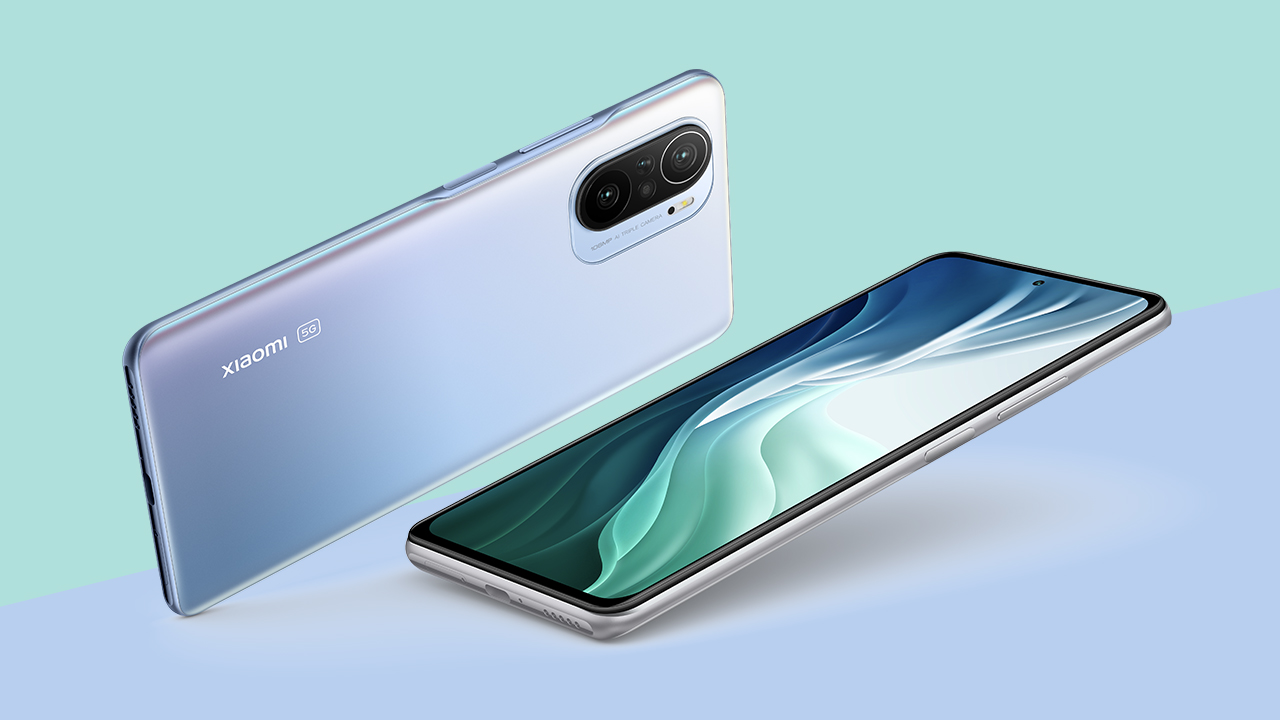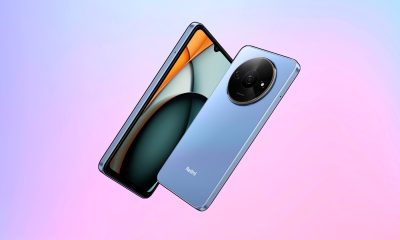India
Mi 11X Pro launches with Snapdragon 888, 108MP camera
Alongside the midrange Mi 11X

After weeks of teasing, Xiaomi has finally unveiled the Mi 11X series, and it’ll be succeeding the Mi 10T series. Consisting of the Mi 11X Pro and the Mi 11X, the series will be going up against the vivo X60 series, realme GT, OnePlus 9 series, and OPPO Find X3 series.
The Mi 11X Pro sits between the ultra-premium range and midrange, offering best-in-class specifications that aren’t too heavy on the pocket. Unlike its predecessor, it’s much lighter now, coming in at 196g. The primary camera also has a halo ring that makes the lens easy to spot. It’s IP53 rated for dust and water protection.
On the front is a 6.7-inch AMOLED display with a 120Hz refresh rate, Full HD resolution, Gorilla Glass 5 protection, and HDR10+ support. Under the hood is a Snapdragon 888 processor that’s backed by Adreno 660 GPU. There’s 8GB of RAM, and storage isn’t expandable.
The rear gets a triple-camera setup that includes a 108-megapixel primary sensor, an 8-megapixel wide-angle lens, and a 5-megapixel macro lens. Xiaomi says the new primary sensor leverages 9-in-1 2.1μm Super Pixel technology that produces better low-light images and retains details. On the front is a 20-megapixel front camera that’s located in a punch-hole cut-out.
Backing these internals is a slightly small 4520mAh battery that supports 33W fast charging. According to the brand, it can charge the phone fully in just 52 minutes. There’s no headphone jack in line with previous Mi-branded premium phones, and the fingerprint scanner is located on the side.
The Mi 11X Pro costs INR 39,999 (US$ 533) for the 8GB+128GB option and INR 41,999 (US$ 560) for the 8GB+256GB variant. Shipments start from May 3, and color options include Cosmic Black, Lunar White, and Magic Celestial Silver.
The Mi 11X, on the other hand, inherits a lot of features from the elder sibling. It has the same AMOLED display, design, battery, and even color options. But it’s powered by a Snapdragon 870 processor, and there’s an option with 6GB RAM. On the rear, it gets a 48-megapixel primary camera instead, while the other two sensors remain the same as the Mi 11X Pro.
It’s priced at INR 29,999 (US$ 400) for the 6GB+128GB option and 8GB+128GB goes for INR 31,999 (US$ 425). The sale starts on April 27 via Mi.com, Mi Stores, Amazon.in, and other offline partners.


There’s no doubt that India is a major market for technology. While the country has its own brand preferences outside of the world’s usual, everyone still wants to get a piece of the market. To the dismay of global companies, the country is realizing the potential of its own market. Effective immediately, India has started restricting imports for new laptops, tablets, and PCs.
Recently, India made some headlines in the smartphone industry. A few companies, including Apple, have poured funds into building factories in India. Locally produced devices will allow these companies to attract the Indian market better. With the new regulations out today, it looks like these brands are going to enjoy a head start over others who aren’t in the country yet.
The Indian government introduced a new restriction (via Reuters) against the importation of “laptops, tablets, all-in-one personal computers, and ultra-small form factor computers and servers” made from other countries. Customers, however, will get an exemption. Airline passengers can still bring in these devices in their luggage. Additionally, a single imported device is allowable when bought through e-commerce platforms. Companies can import their products only by applying for a special license.
In a nutshell, bulk orders without a license are out. The government is instead encouraging users to buy locally produced products as part of its “Make in India” program. At the very least, it’s not a total ban on foreign brands. For example, Dell, HP, and Lenovo are exempt from the regulations since they already have production facilities built in the country.
SEE ALSO: Samsung overtakes Xiaomi as top phone brand in India

Attacking a huge smartphone market is difficult. With preferences constantly evolving, it can get tricky to figure out the best lineup to capture most of a market. Samsung, however, has just done it. In the last quarter of 2022, Samsung has taken the crown from Xiaomi as the bestselling smartphone brand in India.
India is an important market for most smartphone brands. It’s one of the largest markets in the world. However, despite its size, the biggest players are often those who offer more affordable devices for consumers. Budget is the name of the game if a brand wants to make it big in the country.
Things are changing, though. According to new market data (via Reuters), Samsung has nabbed the throne from the former leader, Xiaomi. In the last quarter of 2022, the Korean brand grabbed 20 percent of the market, while the latter only got 18 percent.
In a trend dubbed as premiumization, Indian consumers are reportedly enjoying more disposable income, resulting in more willingness to buy pricier products. Additionally, the report hints that consumers have started equating lower prices with inferior quality.
With the market trending towards more premium products, Samsung took the lead with a lineup that consists more of midrange to premium devices. It will also be interesting to see if Apple, an even more premium brand, can also make a dent in the Indian market.
SEE ALSO: Buyer’s Guide: Samsung Galaxy S23 Ultra

For one of the largest smartphone markets in the world, India is one of the rarer countries where Apple does not outright dominate. Undoubtedly, the company is trying to change that. Ongoing job listings in India are suggesting that Apple is ready to open its first brick-and-mortar store in the country.
First reported by Financial Times, Apple has posted job openings in India for several retail roles including for the iconic Genius Bar. Another clue even indicates that some spots have already been filled ahead of time. A few employees in the country have reportedly posted about their new jobs on LinkedIn.
Unfortunately, none of the job listings show how many stores are planned and where they will be. Narrowing things down by a bit, a few of the confirmed employees are from Mumbai and New Delhi. The report also does not indicate when the stores will open. However, since a few have already been hired, a grand opening might be coming soon.
Apple has a lot to gain by strengthening its foothold in India. The country is an important stronghold for smartphone companies. However, the company might find things harder as time goes by. The country recently dictated that brands must switch to USB-C if they want to sell their devices in India. All over the world, Apple remains the last stalwart against adopting the more universal standard.
-

 Features1 week ago
Features1 week agoFortify your home office or business setup with these devices
-

 Events2 weeks ago
Events2 weeks agoStellar Blade: PlayStation taps cosplayers to play Eve for game’s launch
-

 Gaming2 weeks ago
Gaming2 weeks agoThe Rogue Prince of Persia looks like an ultra-colorful roguelite
-

 Accessories2 weeks ago
Accessories2 weeks agoLogitech unveils G Pro X 60 gaming keyboard: Price, details
-

 Gaming2 weeks ago
Gaming2 weeks agoStar Wars Outlaws release date revealed
-

 Reviews1 week ago
Reviews1 week agorealme 12+ 5G review: One month later
-

 Gaming2 weeks ago
Gaming2 weeks agoLenovo confirms development of a Legion Go 2
-

 Deals2 weeks ago
Deals2 weeks agoTCL P635 TV: Big savings for TCL’s anniversary























